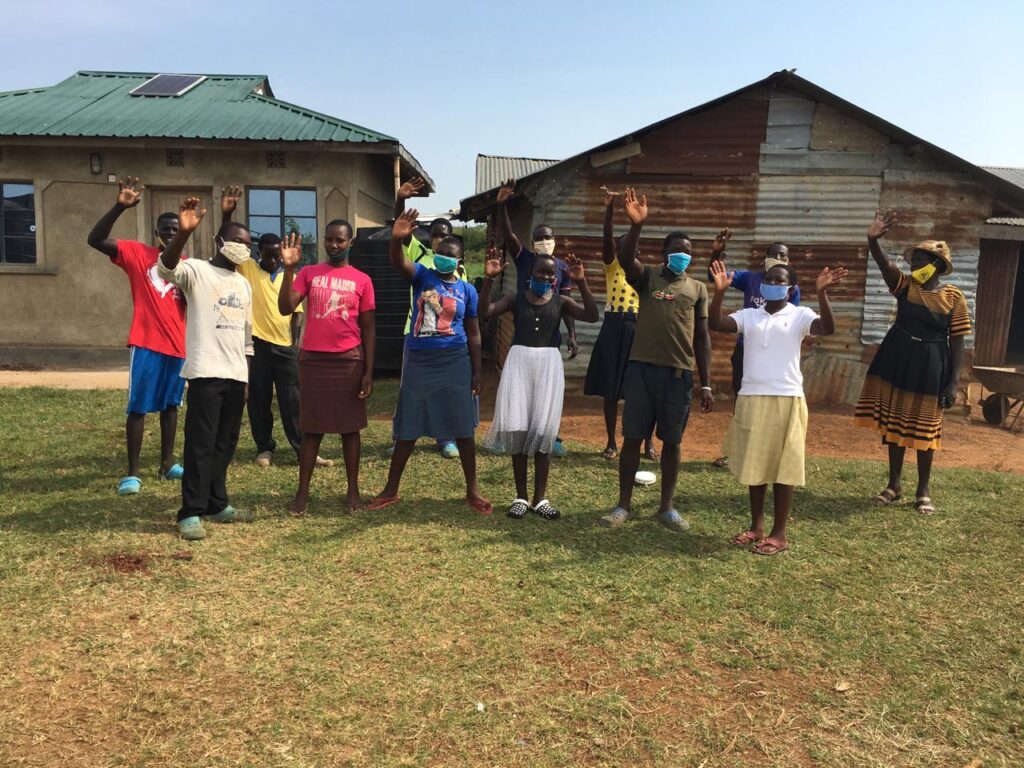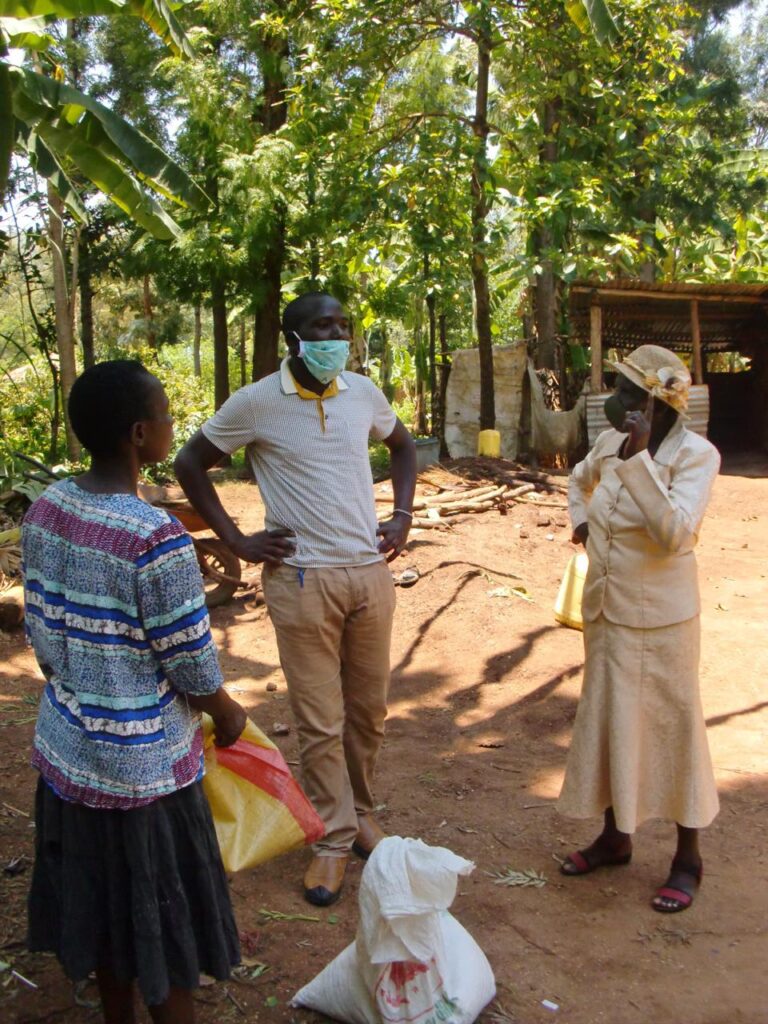
Dolfine discusses the impact of COVID-19
In September, we asked Mama Dolfine to share with us the circumstances and challenges the Korando Education Center community has been facing. Note that this interview has been edited for clarity and length.
What changes do you need to make because of COVID-19?
The government is providing masks for the children in public schools, but since this isn’t a government school, we must buy masks for every child. We must have places for washing hands, dust bins in every classroom, sanitizer for every class—2 bottles every day. We must have disinfectant for the toilet and they must be washed 3 times a day. Every bed must have a mosquito net, because the mosquitos are really bad because there has been too much rain.
What needs to be done to the Center before school can resume?
The government came on Monday and was satisfied with the new building sponsored by Ripple Effect Project. There are some areas of the old classrooms we need to repair and there are two rooms for the boarders, one for the boys and one for the girls. We used to have two children share a bed, but now every child needs their own bed for social distancing, and so we need to put 20 new beds and two new dormitories. The water was entering our old library so we converted one of the rooms in the new school to the new library. We are going to repair the old library to make it another classroom. We will have 5 classrooms in the new building and 4 in the old building with 2 dormitories, one for the girls and one for the boys.
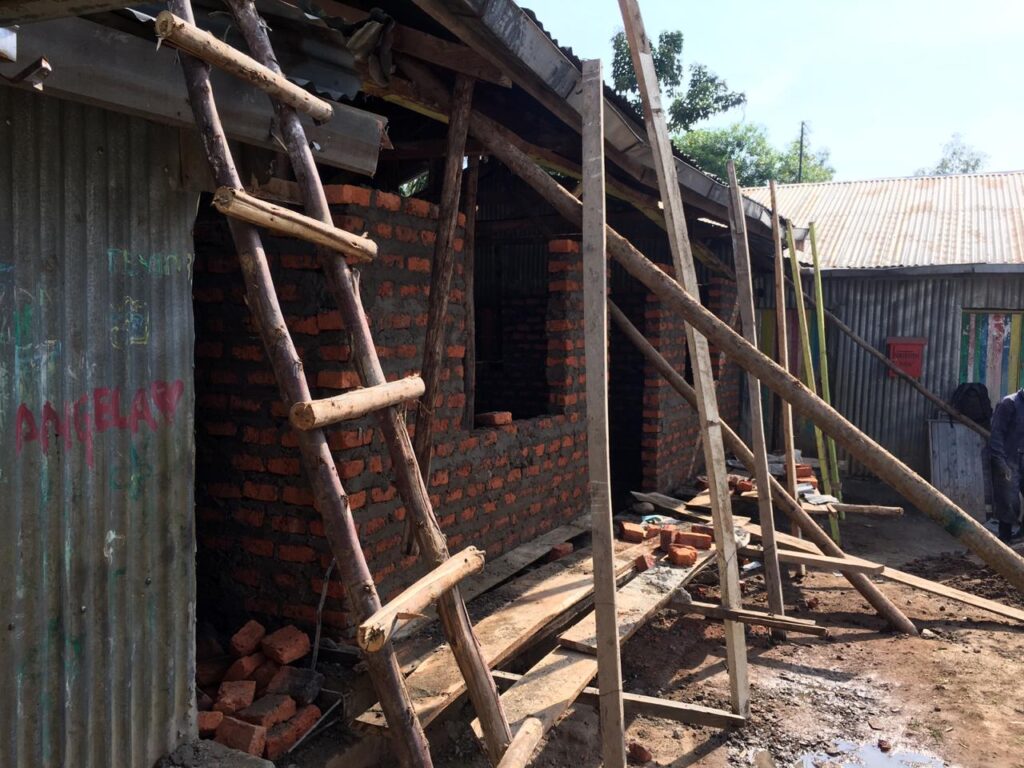
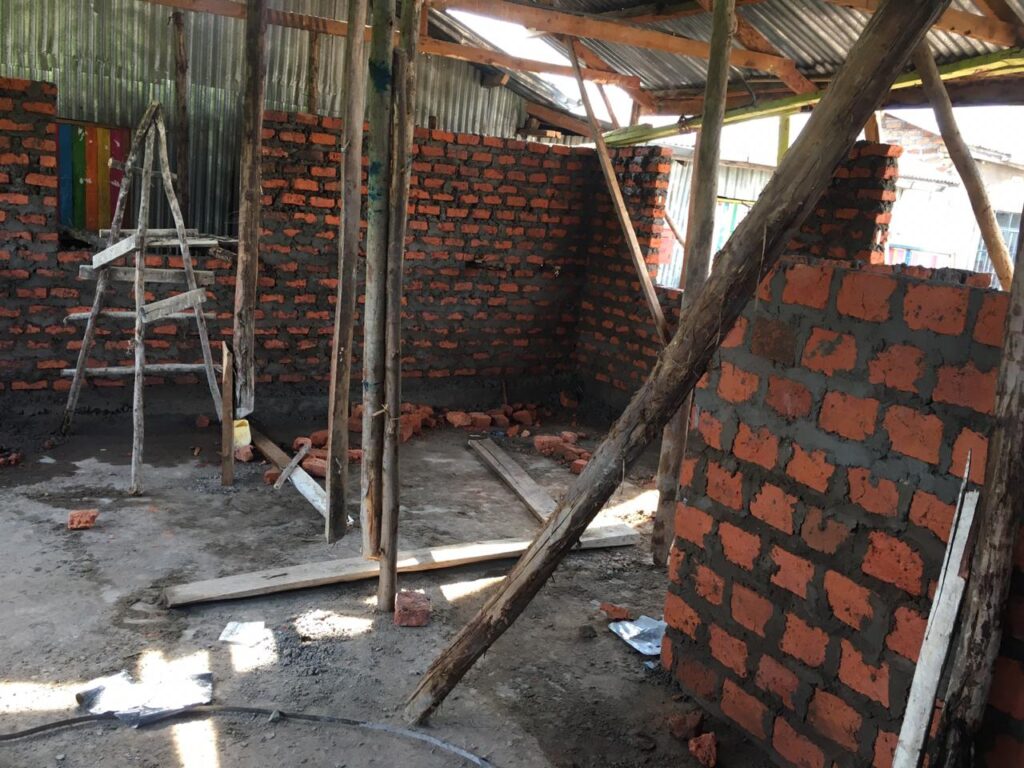
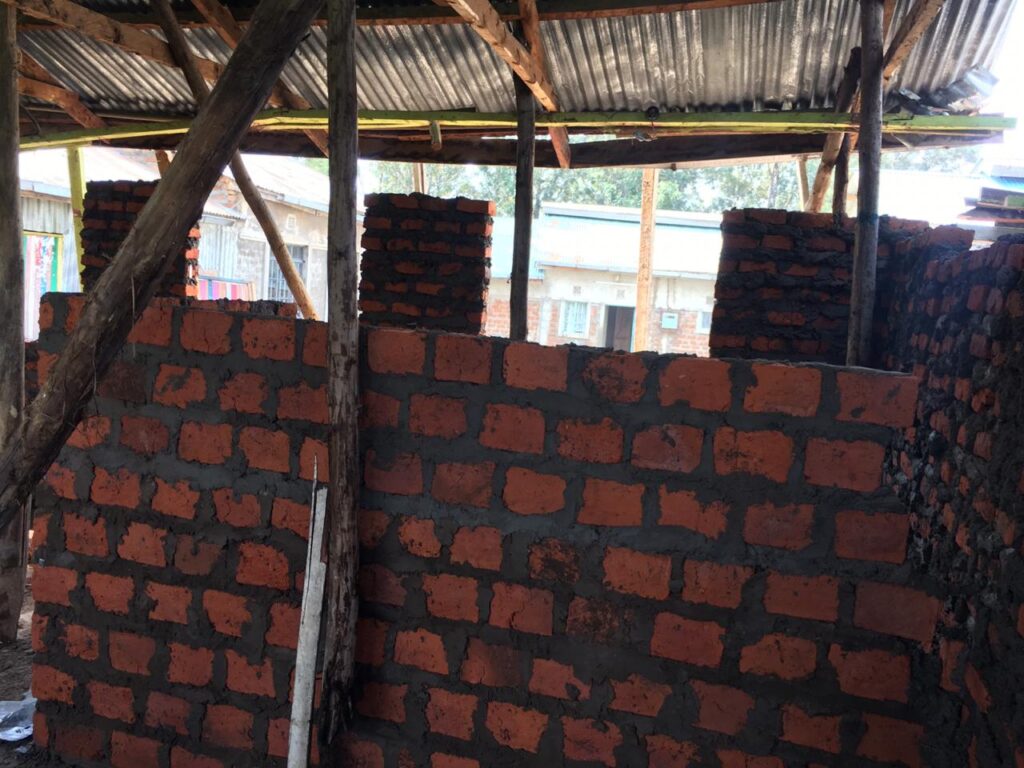
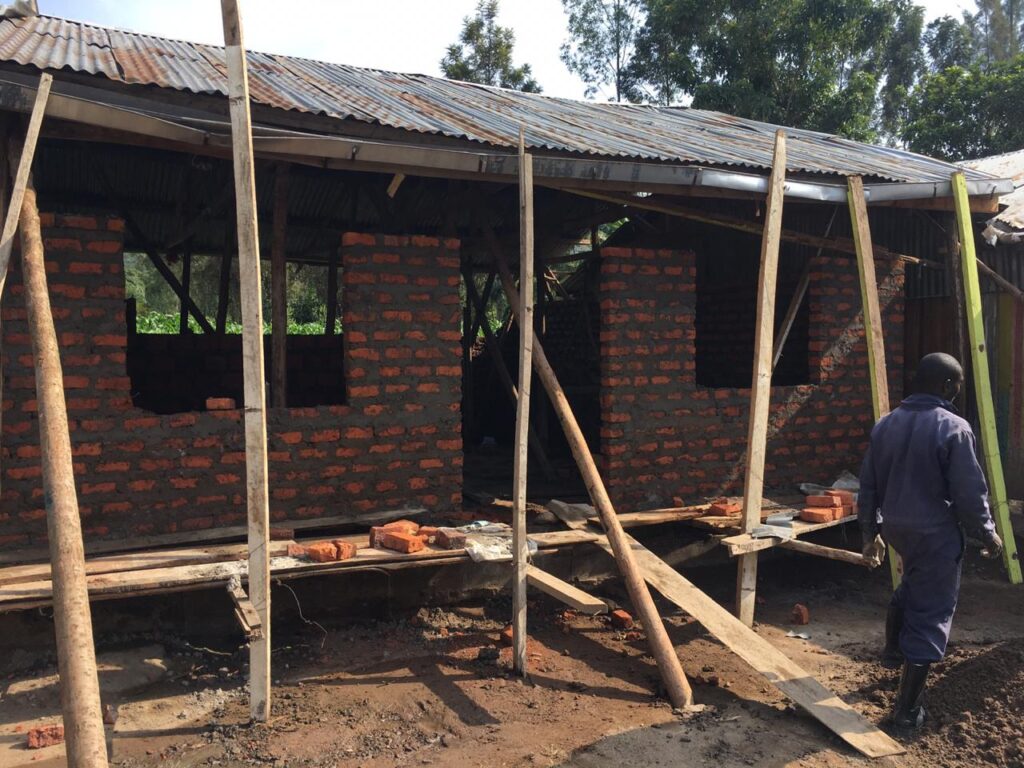
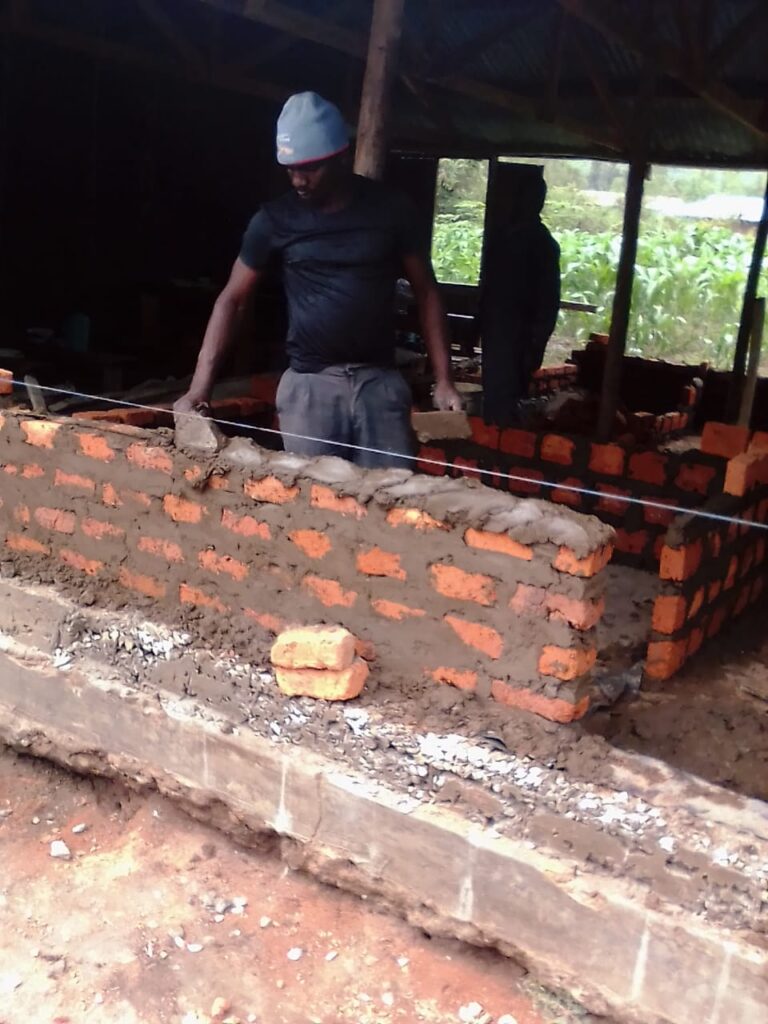
How many kids came back in October and how many will come back in January?
There are 20 children per class and three classes returning, so 60 students return in October. Some of them will be outside and some will be boarders. Only 13 boarders came back in October.
The rest of the children will be called back by January. The government called back on October 4 for grades 4, 7 and 8 only. These are the students that will need to sit for their national exams in February to move to the next class, and by starting school now, the hope is that they will be ready for their exams. There is a restructuring of the schools in Kenya that is to take place in January when the other classes start school again; Class 7 and 8 will be going to High School and Class 5 and 6 will be in Junior High School. This is a new curriculum that we are starting this year. Class 7 will be doing exams with Class 8. [Ed. Note: since this interview, the government has approved grades 4-8 to return to class, with grades preschool through Class 3 to return in January.]
The government is saying that if the students begin learning in early October they will be ready for their exams in February. The teachers and I are expecting that the government may decide to lower the pass mark, because normally the government puts the pass mark very high. The remaining students will start school in January.
How have the kids been staying busy? What are their days like?
Those that are living with their relatives, their lives are a bit difficult for them. Here we have electricity and water, so the students can do their homework at night and can learn at night and are able to look at the laptops that we have here. So the children that are boarding here are enjoying their time. So many children are requesting to come live with us but because of the living space we don’t have the bedding.
There is a lot of difference between those living with us and those living with their relatives. They find it difficult because life isn’t easy for them. The children are working on a small piece of land to look for local vegetables, the child needs to carry buckets to get water and they need to look for firewood. Life becomes very difficult for a child that lives with their relatives rather than inside the Center. Some are walking from home and saying “it is difficult for me, please let me stay.” But because we don’t have the living space, it isn’t easy for us to accommodate the 216 students.
If we had enough rooms for their sleeping and bedding and food we could take them in.
We only give the students living at home porridge. We find that when we give the students porridge at 10 AM there is no food again at home. We believe in sharing even if small. Our biggest problem is bed for sleeping. If we had the building, the bedding, soap for them to wash and food we could take more students.
When school begins and life becomes normal, we will not be sending the food back to the families; that is where the problem starts. Too often, when a child returns home from school they find that whatever small amount of food the family had has been eaten. If we have the food once school begins, it will be our obligation to continue giving them food, but if it is not there, we will not continue.
While we don’t have the boarding space for all 216 students, we can have early dinner so that the children can eat before they go back. Unfortunately, we find that some of them have siblings and the sibling is hungry. Dividing and providing food for them all of the time would be ideal. They feel happy and enjoy that food all of the time. Our children are experiencing different ways of lifestyle which are really not easy to solve.
We want to provide an environment so that the children can learn. I know that one day God is going to give us a solution because the problem is food. Because we have been providing food, so many relatives are closer to the children than they were before because the children are helping to bring food to the relatives.
Are there still restrictions due to COVID-19 in the country?
We must have masks, we must keep the social distancing, but other than that we are free to move anywhere. You can get arrested if you don’t have a mask.
Are people in the community working again?
So many factories are closed. The Education Center is having a hard time. The private schools that were charging fees used to use those fees to pay the teacher. Now, they are not going to continue having many of these schools because they cannot afford to reach all of the requirements that the government is asking. So now many people are going to send their children to public schools which costs less money.
Are there enough public schools to educate all of these children?
The public schools are many, but you will find 80 children in each classroom. The government is now giving out money to build classrooms so that each class only has 20 children. This will be a challenge to the government, because the government is saying that they don’t have money.
The nurses and doctors are on strike now because they haven’t received their salaries since June. It is the government who pays them. So now we are waiting to see what they are going to do.
Earlier in the year there were concerns about not having access to food. Is this still the case?
This is still the same. We have been getting food from Uganda but now the trucks from Uganda deliver the food that you order to your door. We used to have to get a truck and a security man to get the food, but this time they bring it up to our door. Food went up to $46 USD per bag and now it is back to $33 per bag. After the long rains the prices go down and then the prices go back up after the short rains. Prices from local farmers may go down in January because they need to sell the crops to pay school fees for their children.
Are you finding a lot of hunger in the community around you?
A lot of people come and beg for food, but the security man is walking around the compound. During the day the people who come to beg for food, and we usually feed them because sincerely they are hungry.
How is the program going to deliver food and teachers to the students that are still living with their families?
We find that some children are super desperate but we can’t bring them back right now.
[Prior to the students returning in October,] there [were] 22 at the Center here at the school and 26 at the farm. There are also some bigger ones in High School and College that don’t have anywhere to go, so they are at the farm too, which makes 36 children at the farm. Twice a month we deliver food, once at the beginning of the month and once halfway through. We divide the food with the children who are boarding here and the ones still at home. We now have enough food for the months of October and November.
It is a lot of work to deliver all of the food to the children that number 216 (minus the kids at the school now) and so we find it very cumbersome—but we are happy to do it. It is a joy to see the children; we encourage them that God is there and God is going to help, we give them food and the word of God and we leave them happy.
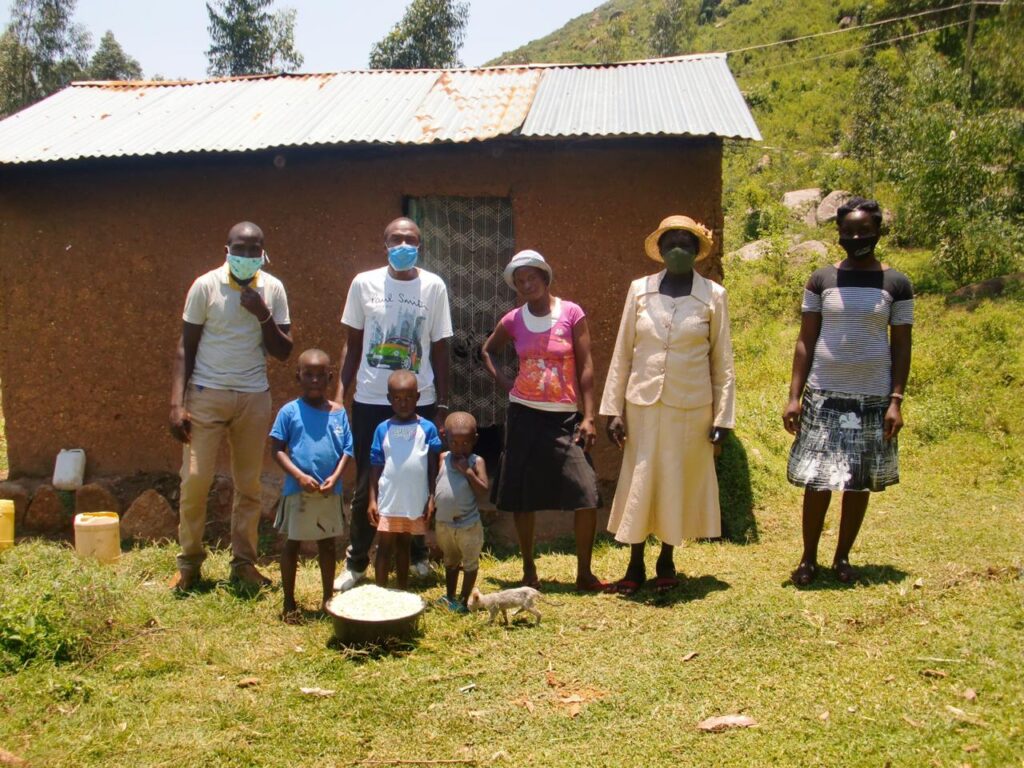
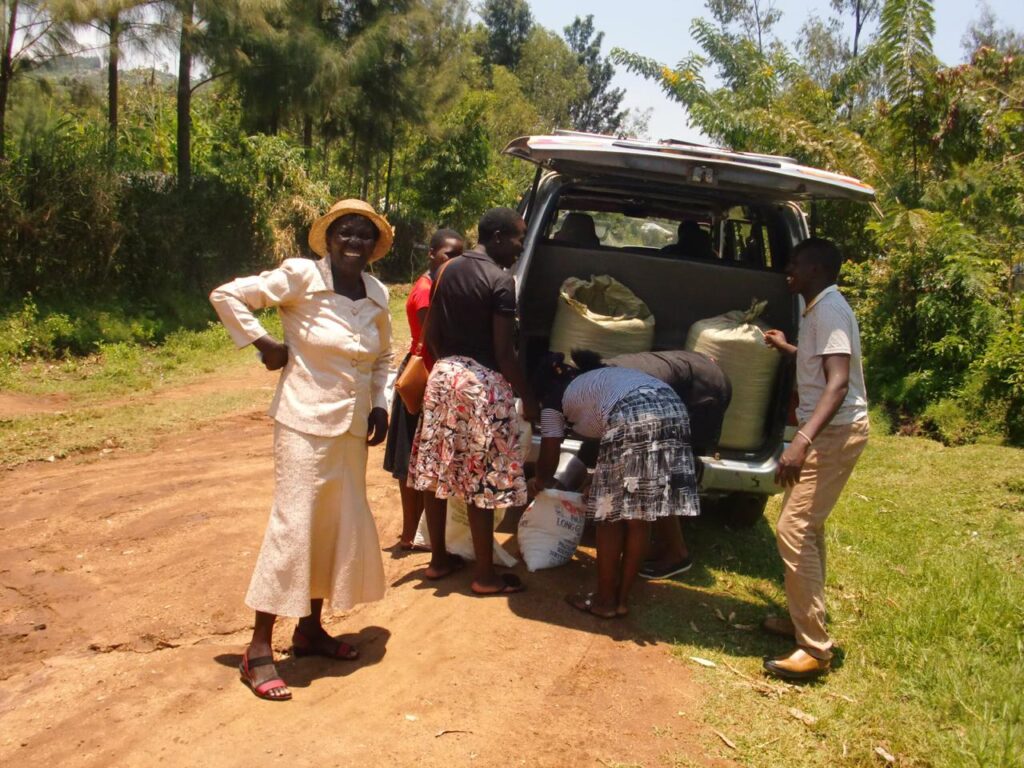
What has the weather been like, and how has that affected crops?
The rains were too plentiful in the beginning of the year up until now, so there were too many floods. There are usually long rains between January and March and short rains between July and October, and we usually plant again in August and harvest in October. The rain stopped around June and July completely but all of September it has been too much. There are three rain showers a day and the weather is so chilly. There is still flooding in some areas where the water continues to come up.
When we planted our crops at the farm towards the end of July and August, the crops were very good. We planted beans and maize. Because of too much rain now there is standing water inside the farm. The beans are now becoming stiff because they don’t want too much water. If the rains won’t stop, then we won’t have any hope of harvest and there will be a lot of hunger again.
What are your long term concerns from this past year?
It has already affected the kids. In a normal year, they begin their national exams in October. It means that if they are to join university they can’t join until September 2021. We have 3 university students who have started learning again now. The children are seeing that this year is wasted and they don’t know what is coming in 2021, if they will be able to start High School or University.
Other students that are coming in January will repeat their classes again.
Is there anything that you want everyone to know about?
Most of my children are living with relatives. Since in most of Kenya there is no water or electricity, what you find is that it is very difficult for the child that lives that life—and given the resources, the children could live with us. That would make it equal. Right now the child needs to look for firewood, they are grinding corn for bread, etc. The child is given no time to do homework and there is no paraffin for them to do homework at night. So when the child comes to school, the teachers are finding that the child is coming with homework that is not done. You find that the child is overworked. Our goal is the children be uniform in their learning. If there was a way to make that uniformity, I would wish there was a way to have all of the 216 children board here.
I wish that we would come together and learn together and study together and play together and let the child’s growth go higher. That is my request. I wish that God would open a way so that my children get what they want.
